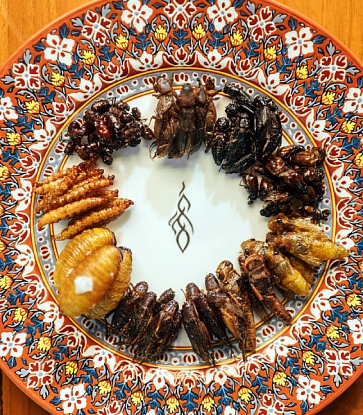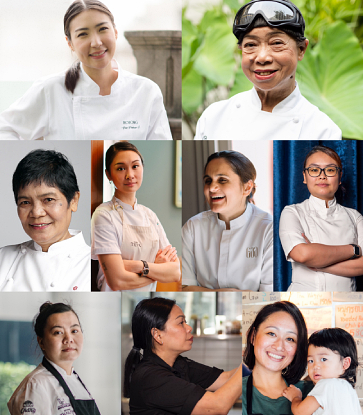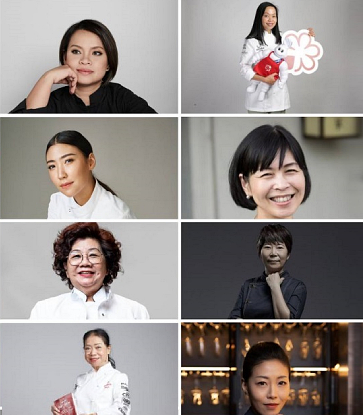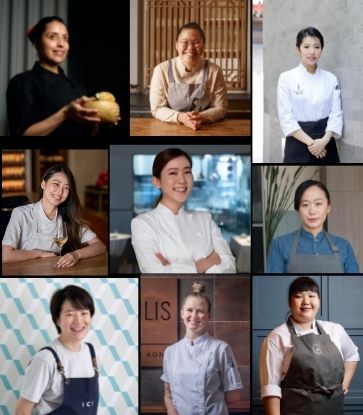In the vibrant world of Korean cuisine, few elements embody a century of expertise and tradition as profoundly as Ilpoom Jinro soju. For over 100 years, Ilpoom Jinro has been more than just a beverage; it is a living testament to the rich flavors of Korean terroir and a symbol of heritage passed down through generations. This soju has not only preserved the time-honored techniques and ingredients that define Korean culture but has also evolved, elevating soju to a celebrated status across all demographics. In the realm of culinary arts, 'heritage' is not merely a relic of the past; it serves as a foundation and inspiration for innovation.
A century of craftsmanship is distilled in every bottle of Ilpoom Jinro, much like the culinary masterpieces created by leading female chefs at Michelin-selected restaurants. These chefs, much like Ilpoom Jinro, weave together history and modernity, transforming tradition into art and crafting experiences that honor the rich history and culture. Their work reflects a deep respect for heritage while pioneering new gastronomic cultures that elevate Korean cuisine on the global stage.
Bomi Kim: Weaving Tradition into Culinary Art at Mitou

Chef Bomi Kim of Mitou sees heritage as a guiding compass in her culinary journey. To her, heritage is more than a historical relic; it's the culmination of past chefs’ endless efforts and creativity. "Heritage is the result of countless hours of contemplation and development by chefs of past generations," she explains. While it’s challenging to directly apply these traditional practices in today’s kitchens, she believes they serve as a foundation for discovering new flavors and creating what could become the heritage of tomorrow.
“Heritage is the result of countless hours of contemplation and development by chefs of past generations.”
Chef Kim places great importance on the harmonious pairing of food and soju, advising that it’s crucial to carefully choose the alcohol’s strength, considering the body and richness of the dish. She particularly recommends pairing distilled soju with dishes that make liberal use of aromatic herbs like Korean watercress or perilla leaves.Finally, Chef Kim commented on the bottle’s design, adding, “I believe the elegant design is also one of the distinguishing features that sets Ilpoom Jinro apart.”
Chef Kim Bomi first crossed paths with Ilpoom Jinro about six years ago. “I’ve always valued balance in both the taste and aroma of all alcoholic beverages,” Chef Kim recalled. “Unlike traditional diluted soju, Ilpoom Jinro exudes a calm and sophisticated fragrance.” She emphasized that the smoothness of Ilpoom Jinro’s finish is one of its greatest charms. “It was astonishing to me that a drink could glide down so effortlessly while still offering such deep, rich flavors.”
As for her vision for Mitou, Chef Kim aspires to create a space that celebrates Korea’s seasonal ingredients and diverse cultures. She believes in not just using these ingredients but also conveying their stories and significance to her guests, ensuring that the spirit of heritage continues to thrive in her culinary creations. "I hope our restaurant can become a place where people can truly experience the essence of Korean culture and its rich flavors," she shares.

Hee-eun Kim: Bridging Past and Present at Soul

At her Seoul-based restaurant, Soul, Chef Hee-eun Kim places heritage at the heart of her cooking. For her, heritage is embodied in the wisdom and love passed down through generations, captured in old recipes that continue to inspire her. "When I look at old cookbooks, I'm amazed by the wisdom they contain," she says. "The love and effort our ancestors put into these recipes are something I try to honor and bring into my dishes." She reinterprets these traditional elements with a modern twist, ensuring that her dishes are both innovative and deeply rooted in Korean culture.
“The love and effort our ancestors put into these recipes are something I try to honor and bring into my dishes.”

Chef Kim’s journey into the culinary world began in her early twenties when she transitioned from studying ceramics to pursuing her passion for cooking. Her appreciation for soju is reflected in her pairing recommendations, particularly her fondness for Jinro 1924 Heritage. "The smooth and elegant finish of Jinro 1924 Heritage makes it an excellent companion for Korean dishes," she notes. Her signature potato pancakes, blending traditional flavors with contemporary techniques, pair particularly well with this soju.
Kim also sees soju as a crucial part of the Korean dining experience, a sentiment that has grown stronger over the years. "Soju is more than just a beverage; it's a part of our cultural fabric," she asserts. "It brings people together and enhances the dining experience in a way that is uniquely Korean." She stresses the importance of preserving and promoting Korea’s traditional food and drink, aiming to create a unique culinary culture that resonates both domestically and globally.
Sukyung Park: Innovating Tradition at Geumdwaeji Restaurant

For Sukyung Park, the force behind Geumdwaeji Restaurant, heritage is all about honoring the essence of traditional Korean cooking while embracing modern sensibilities. Growing up, Park was deeply influenced by her mother’s home-cooked meals, which instilled in her a profound respect for tradition and the role it plays in Korean culture. "The way my mother cooked, with such care and attention to detail, is something I carry with me in my own cooking," she recalls.
“The way my mother cooked, with such care and attention to detail, is something I carry with me in my own cooking.”

Park’s approach to cooking involves reinterpreting classic Korean dishes with a fresh perspective. "I love taking traditional recipes and adding a modern twist to surprise our guests," she shares. She incorporates unexpected ingredients, like pairing basil with ssamjang, to offer a new take on familiar flavors. Her philosophy extends to her views on soju, which she considers a symbol of Korean culture. "At Geumdwaeji, soju isn’t just a drink; it’s a cultural ambassador," she says. Park particularly recommends pairing Ilpum Jinro soju with pork dishes for an enhanced dining experience, adding, "The natural aroma from oak barrel aging, combined with the clean, refreshing taste of Ilpum Jinro, makes it an ideal match for our pork dishes."
Looking ahead, Park is committed to growing Geumdwaeji into a global brand that preserves and innovates upon the tradition of Korean barbecue, with plans to expand internationally. "I want the world to experience the richness of Korean cuisine," she says. "By carefully balancing tradition and innovation, we can introduce Korean barbecue to new audiences and show them the depth of our culinary heritage."
Bomee Ki: Celebrating Tradition and Creativity at Sollip

Chef Bomee Ki of Sollip emphasizes the importance of tradition as a foundation for creativity. She believes that great culinary creations are built on respect for and understanding of heritage, which she incorporates into her desserts and overall culinary approach. "To me, tradition is the backbone of any good dish," she says. "Without understanding where a dish comes from, it’s impossible to create something truly meaningful."
“To me, tradition is the backbone of any good dish. Without understanding where a dish comes from, it’s impossible to create something truly meaningful."”
Ki’s passion for baking and desserts began in her childhood and led her to Le Cordon Bleu in London. There, she honed her craft and later opened Sollip, where she now showcases Korean culinary traditions in a modern context. Her time abroad has deepened her appreciation for her roots, which she reflects in her dishes and her approach to soju. "Working abroad made me realize just how important my Korean heritage is to my cooking," she shares. "It’s something that I strive to honor in every dish I create."

At Sollip, Ki is dedicated to authentically presenting Korea’s unique culinary heritage in London, ensuring that the rich history and traditions of Korean cuisine are appreciated by a global audience. "Our goal at Sollip is to share the beauty and depth of Korean food with the world," she says. "By staying true to our roots while embracing creativity, we can create something truly special."
Warning: Excessive alcohol consumption can result in adverse health effects such as stroke, memory loss, or dementia. Consumption of alcohol during pregnancy may increase the risk of birth defects in newborns.
Drink Responsibly: This content is intended for individuals over the legal drinking age of 19.















